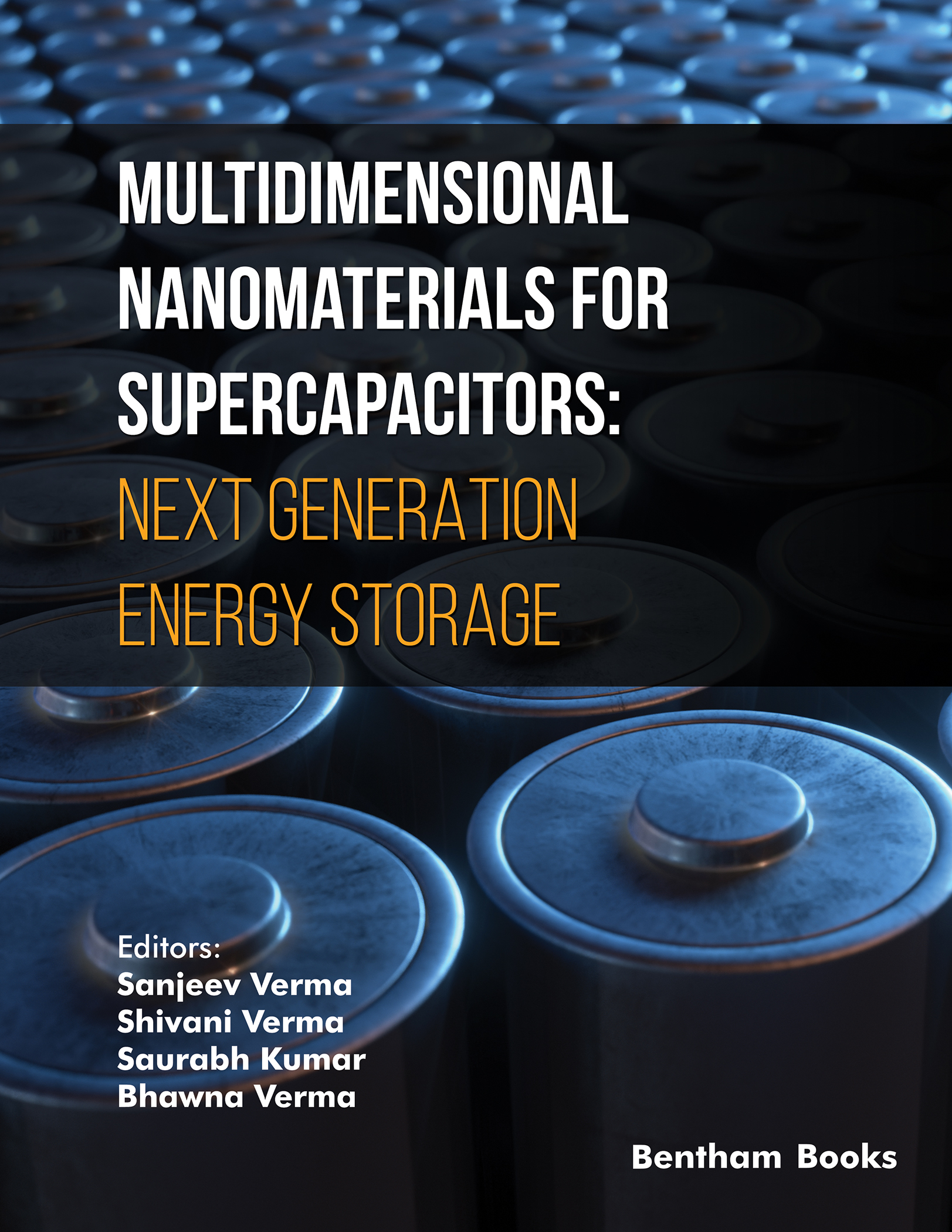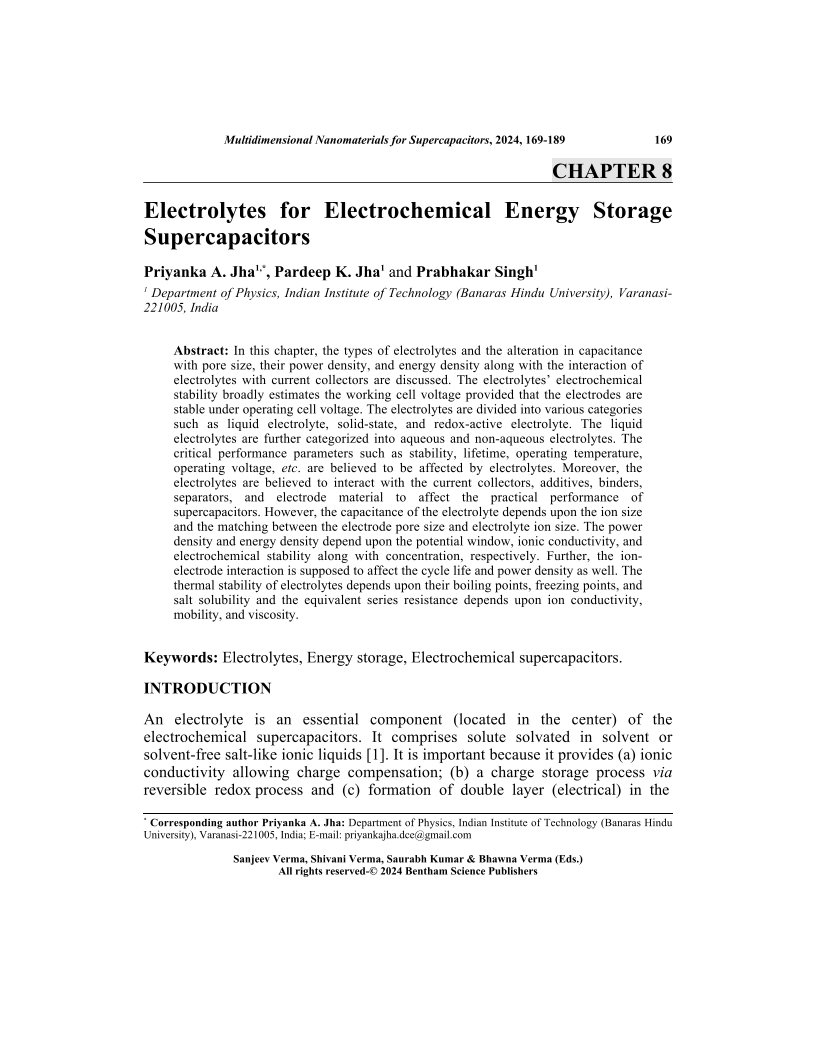Electrolytes for Electrochemical Energy Storage Supercapacitors

- Authors: Priyanka A. Jha1, Pardeep K. Jha2, Prabhakar Singh3
-
View Affiliations Hide Affiliations1 Department of Physics, Indian Institute of Technology (Banaras Hindu University), Varanasi 221005, India 2 Department of Physics, Indian Institute of Technology (Banaras Hindu University), Varanasi 221005, India 3 Department of Physics, Indian Institute of Technology (Banaras Hindu University), Varanasi 221005, India
- Source: Multidimensional Nanomaterials for Supercapacitors: Next Generation Energy Storage , pp 169-189
- Publication Date: May 2024
- Language: English
Electrolytes for Electrochemical Energy Storage Supercapacitors, Page 1 of 1
< Previous page | Next page > /docserver/preview/fulltext/9789815223408/chapter-8-1.gif
In this chapter, the types of electrolytes and the alteration in capacitance with pore size, their power density, and energy density along with the interaction of electrolytes with current collectors are discussed. The electrolytes electrochemical stability broadly estimates the working cell voltage provided that the electrodes are stable under operating cell voltage. The electrolytes are divided into various categories such as liquid electrolyte, solid-state, and redox-active electrolyte. The liquid electrolytes are further categorized into aqueous and non-aqueous electrolytes. The critical performance parameters such as stability, lifetime, operating temperature, operating voltage, etc. are believed to be affected by electrolytes. Moreover, the electrolytes are believed to interact with the current collectors, additives, binders, separators, and electrode material to affect the practical performance of supercapacitors. However, the capacitance of the electrolyte depends upon the ion size and the matching between the electrode pore size and electrolyte ion size. The power density and energy density depend upon the potential window, ionic conductivity, and electrochemical stability along with concentration, respectively. Further, the ionelectrode interaction is supposed to affect the cycle life and power density as well. The thermal stability of electrolytes depends upon their boiling points, freezing points, and salt solubility and the equivalent series resistance depends upon ion conductivity, mobility, and viscosity.
-
From This Site
/content/books/9789815223408.chapter-8dcterms_subject,pub_keyword-contentType:Journal -contentType:Figure -contentType:Table -contentType:SupplementaryData105

